Basic Mandarin 🤩 105 Hugely Useful Phrases To Learn
Learning Mandarin may seem challenging, but a few key phrases can go a long way in making meaningful connections and navigating everyday situations.
In this guide, you’ll learn essential expressions like 你好 (nǐ hǎo), meaning “hello,” and 谢谢 (xièxiè), meaning “thank you,” along with many other practical phrases for common scenarios.
Whether you’re asking for directions with 在哪里 (zài nǎlǐ), ordering local dishes in a restaurant, or seeking help in a tricky situation, this guide has got you covered.
Perfect for beginners, these phrases will give you the confidence to communicate effectively and immerse yourself in the world of Mandarin Chinese 💪 And if you’re looking to keep that momentum going in a structured environment, consider exploring longer-term study options in Beijing that balance practical use with deeper learning.
⬇️⬇️⬇️ Basic Mandarin Quiz ⬇️⬇️⬇️

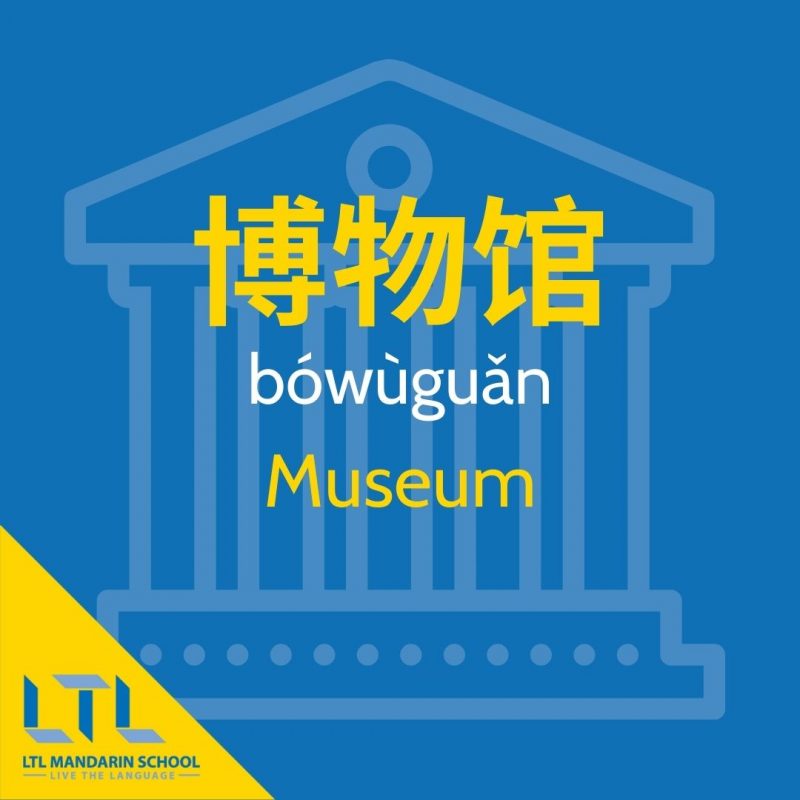


Basic Mandarin Greetings
| Hello | 你好 | nǐ hǎo |
| I am… | 我是... | wǒ shì… |
| How are you? | 你好吗? | nǐ hǎo ma |
| I’m good thanks | 我很好的谢谢 | wǒ hěn hǎo xiè xiè |
| Have you eaten?* | 你吃了吗? | nǐ chī le ma |
| Nice to meet you | 很高兴认识你 | hěn gāo xìng rèn shi nǐ |
| What is your name? | 你叫什么名字? | nǐ jiào shén me míng zì? |
| My name is… | 我叫... | wǒ jiào… |
| My friend’s name is… | 我朋友叫... | wǒ péngyǒu jiào… |
| I’m from… | 我来自... | wǒ lái zì… |
| Where are you from? | 你来自哪里? | nǐ lái zì nǎ li? |
| Goodbye | 再见 | zài jiàn |


Check out some alternate ways to say hello in Mandarin or some more about basic greetings in Chinese here.
Thanks and Related Phrases in Mandarin
| Thank you | 谢谢 | xiè xiè |
| Please | 请 | qǐng |
| You’re welcome | 不客气 | bú kè qì |
| I’m sorry | 对不起 | duì bu qǐ |
| Excuse me | 打扰一下 | dǎ rǎo yí xià |
| Yes | 是 | shì |
| No | 不是 | bú shì |
| I’m good thanks | 我很好谢谢 | wǒ hěn hǎo xiè xiè |
| And you?: | 你呢? | nǐ ne? |


Time-Related Phrases in Chinese
| Good morning (early morning) | 早上好 | zǎo shàng hǎo |
| Good morning (late morning) | 上午好 | shàng wǔ hǎo |
| Good afternoon (only to be used around midday) | 中午好 | zhōng wǔ hǎo |
| Good afternoon | 下午好 | xià wǔ hǎo |
| Good evening | 晚上好 | wǎn shàng hǎo |
| Goodnight | 晚安 | wǎn ān |


Asking Questions in Chinese
| Where is …? | ...在哪里? | … zài nǎlǐ? |
| How do I get to …? | 怎么去...? | zěn me qù …? |
| How far is …? | ...有多远? | …yǒu duō yuǎn? |
| Can you show me on a map? | 你能在地图上给我看看吗? | nǐ néng zài dì tú shàng gěi wǒ kàn kan ma? |
| Can you write that down? | 你能把它写下来吗? | nǐ néng bǎ tā xiě xià lái ma? |
| How much does it cost? | 它的价格是多少 ? | tā de jià gé shì duō shǎo? |
| What is this? | 这是什么? | zhè shì shén me? |
| What time is it? | 现在几点? | xiàn zài jǐ diǎn? |
| Do you have …? | 你有 ... 吗? | nǐ yǒu … ma? |
| Do you have anything cheaper? | 你们有便宜一点的吗? | nǐ men yǒu pián yi yì diǎn de ma? |
| Do you like …? | 你喜欢 ... 吗? | nǐ xǐ huan … ma? |
| What is the best …? | 最好的 ... 是什么? | zuì hǎo de … shì shénme? |
| How do you say …? | ... 怎么说? | … zěn me shuō? |
| What is fun to do in Beijing? | 北京哪里好玩儿? | Běijīng nǎ lǐ hǎo wán er? |
| What do you recommend? | 你有什么建议? | nǐ yǒu shén me jiàn yì? |
| Where can I …? | 我在哪里可以 ...? | wǒ zài nǎ li kě yǐ …? |

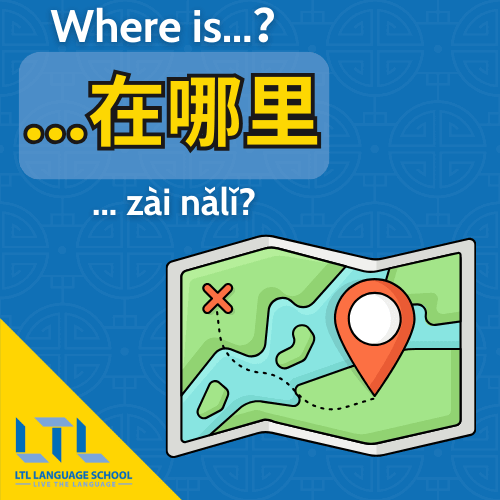
Basic Mandarin Numbers
| One | 一 | yī |
| Two | 二 | ér |
| Three | 三 | sān |
| Four | 四 | sì |
| Five | 五 | wǔ |
| Six | 六 | liù |
| Seven | 七 | qī |
| Eight | 八 | bā |
| Nine | 九 | jiǔ |
| Ten | 十 | shí |
| One hundred | 一百 | yì bǎi |
| One thousand | 一千 | yì qiān |
Want to go all the way to a million? Listen to all the numbers
Learn the numbers in Chinese here.
Places in Chinese
| Here | 这里 | zhè lǐ |
| There | 那里 | nà lǐ |
| Place | 地方 | dì fang |
| Restaurant | 餐厅 | cān tīng |
| Cafe | 咖啡馆 | kā fēi guǎn |
| Hotel | 酒店 | jiǔ diàn |
| Airport | 机场 | jī chǎng |
| Train station | 火车站 | huǒ chē zhàn |
| Bus station | 汽车站 | qì chē zhàn |
| Supermarket | 超市 | chāo shì |
Vehicles in Chinese



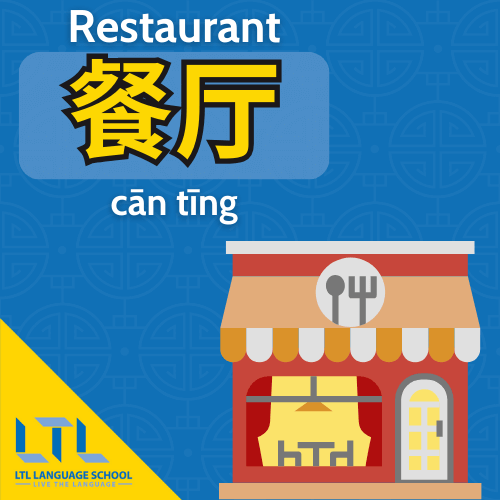
Directions in Chinese
| Left | 左边 | zuǒ biān |
| Right | 右边 | yòu biān |
| Straight | 直 | zhí |
| Backwards | 向后 | xiàng hòu |
Learn the directions in Chinese here.
Likes and Dislikes in Chinese
| I like | 我喜欢 | wǒ xǐ huān |
| I don’t like | 我不喜欢 | wǒ bù xǐ huān |
| I’d like to go to… | 我想去... | wǒ xiǎng qù… |
| I’m allergic to … | 我对 ... 过敏 | wǒ duì … guò mǐn |
Ordering in Chinese
| I would like… | 我想... | wǒ xiǎng … |
| Do you have …? | 你们有 ... 吗? | nǐmen yǒu … ma? |
| Do you speak English? | 你会说英语吗? | nǐ huì shuō yīng yǔ ma? |
| Menu, please | 请给我菜单 | qǐng gěi wǒ cài dān |
| Bill please | 买单 | mǎi dān |
| This | 这 | zhè |
| That | 那 | nà |
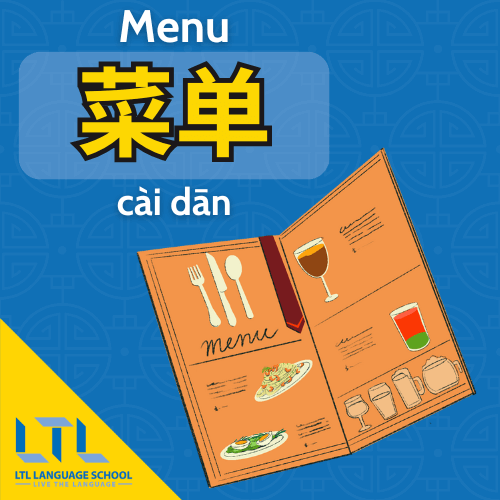

Make sure your pronouncing your initials and finals correctly.
Food in Chinese
| Noodles | 面条 | miàn tiáo |
| Rice | 米饭 | mǐ fàn |
| Chicken | 鸡肉 | jī ròu |
| Beef | 牛肉 | niú ròu |
| Pork | 猪肉 | zhū ròu |
| Vegetarian | 素食者 | sù shí zhě |
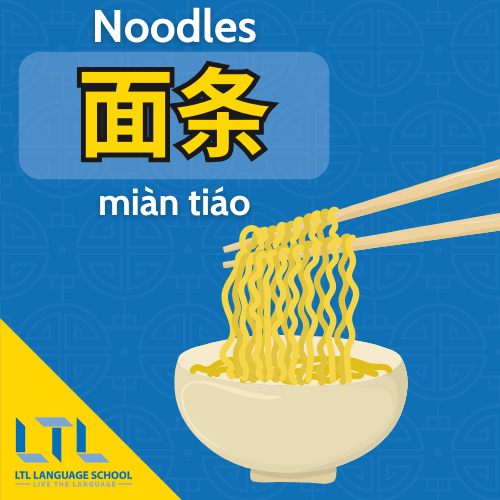
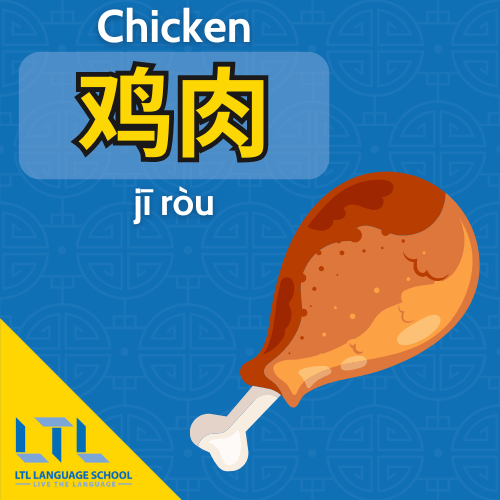
Basic Mandarin tip: Expressing that you are vegetarian or vegan can be difficult in China. A good way to be understood is to say you are Buddhist (佛教) fó jiào. Typically people will understand your diet if you say this.

How to Decode a Chinese Menu Like a Pro 🍜 Chinese Menus Explained + The Complete Cheat Sheet
Chinese Menus. How to read them, how to decode them? Not so easy right? Well with our FREE Chinese Menu cheat sheet and tips, you’ll have no problems!
Drinks in Chinese
| Water | 水 | shuǐ |
| Coffee | 咖啡 | kā fēi |
| Cola | 可乐 | kě lè |
| Beer | 啤酒 | pí jiǔ |
| Tea | 茶 | chá |


PRO TIP || gānbēi (干杯) means “dry cup”, or to finish your drink. So be careful to use the term loosely.
Find out the most popular traditional Chinese dishes here.
Misunderstandings in Chinese
| Please say that again | 请再说一遍 | qǐng zài shuō yībiàn |
| More slowly, please | 请慢嗲 | qǐng màn diē |
| I don’t understand | 我不明白 | wǒ bù míng bái |
| I’m sorry, I don’t speak Mandarin | 对不起, 我不会说汉语 | duìbùqǐ, wǒ bù huì shuō hànyǔ |
| What does … mean? | ... 是什么意思? | … shì shén me yì si |
🌍 Want to learn how to apologize in another language? Check out how to say Sorry in Japanese!
Help in Chinese
| Help | 帮助 | bāng zhù |
| Be careful | 小心 | xiǎo xīn |
| Danger | 危险 | wēi xiǎn |
| Emergency | 紧急 | jǐn jí |
| Fire | 火 | huǒ |
Want all these basic mandarin phrases on flashcards?
Basic Mandarin || Quiz
[qsm quiz=7]
For groups keen to immerse themselves in Mandarin beyond the classroom, short-term study trips to any city China like Shanghai or Beijing school trip can be an inspiring next step
Basic Mandarin || FAQs
Want more from LTL?
If you wish to hear more from LTL Mandarin School why not join our mailing list?
We give plenty of handy information on learning Chinese, useful apps to learn the language and everything going on at our LTL schools.
Sign up below and become part of our ever-growing community.
BONUS | Learn Chinese with LTL in person. Our student community is growing by the week.


 Hi, my name is Ilaria! I am from Italy and I am a Student Advisor at LTL. Fancy coming to study with us in China? Drop me a message.
Hi, my name is Ilaria! I am from Italy and I am a Student Advisor at LTL. Fancy coming to study with us in China? Drop me a message.
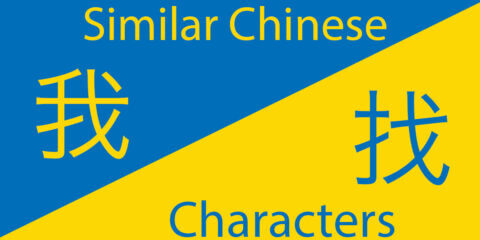
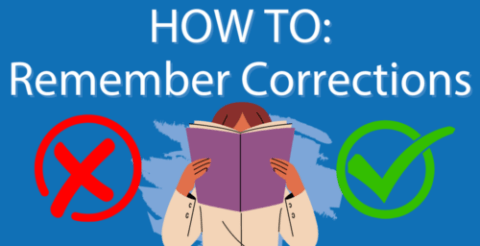



29 comments
Bus: 总线 – zǒng xiàn don't they use 公共汽车 for bus?
Yes they have a number of ways to say this actually but upon reflection 公共汽车 Gōnggòng qìchē is the most widely used so we have changed that!
Thanks for your feedback
i like chinese language and culture of music and art
it's useful and helpful.
[…] you’re done check out directions in Chinese or basic mandarin phases for more helpful stuff to help you get around […]
[…] yet if you want to learn some simple sentences for getting around. We’ve made 100 basic mandarin flashcards you can […]
[…] a basic Chinese food vocabulary and these tips, you’ll have everything you need to find the best restaurants […]
[…] drive to a nearby café to go through my class-notes. As I sit struggling through relatively basic vocabulary, amused locals offer to […]
[…] you need to know all the important vocabulary regarding this topic, so we are going to start with […]
This is so useful LTL, hopefully I can learn these all soon 💪
Thank you Jaime! Good luck with learning them 加油!
LTL
[…] of all, here is some basic vocabulary to get you […]
Really helpful, thank you! Ryan
Thanks Ryan, glad you found it helpful!
The LTL Team
how can I learn Chinese efficiently and quickly?
👏👏👏
🍻
Hi
[…] LTL Mandarin School Beijing. Jianguo Rd. 88, Xiandai SOHO, Building B, 504 建国路88号现代城SO… […]
[…] Basic Mandarin | 105 (Simple) Phrases To Make Your Life … […]
[…] Chinese offers weekly lessons on common Chinese words and […]
Why is there a picture of Jay Gatsby featured here?
[…] https://ltl-beijing.com/basic-mandarin/ […]
[…] from words, you can also consider picking up some basic Chinese phrases. Here are the basic 105 Chinese phrases you can pick […]
very useful for the begginer like me 🙂 thank you very much <3
Pleasure! Always happy to help 🙂
bookmarked!!, I love your websіte!
Not bad 23 correct out of 35 yahoooo, i love mandarin and starting some basic words thank you and KUDOS LTL xie xie.....
Great score, well done Juvy! Keep up the great work 🙂